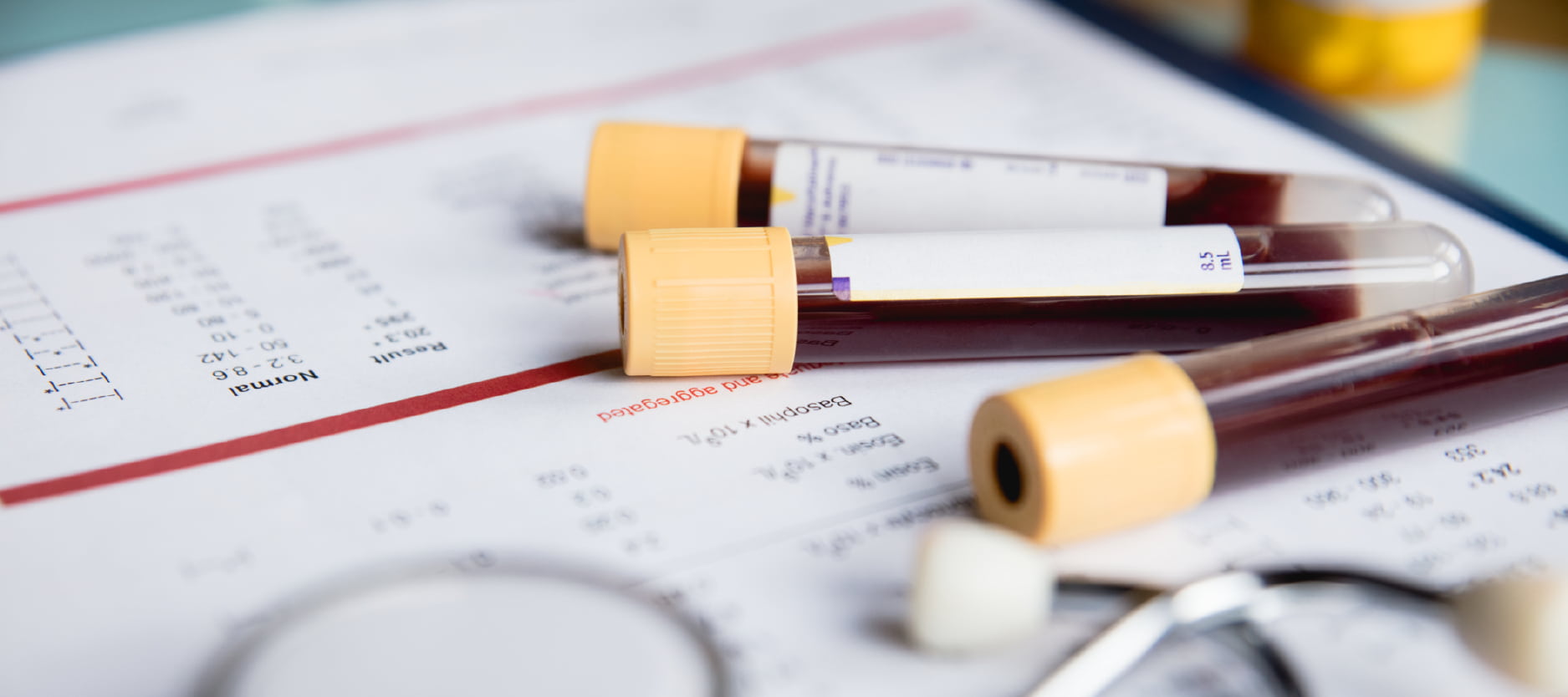Did you know that heart disease is one of the leading causes of death for adults in the United States?1 Though certain risk factors of cardiovascular disease are out of your control — like age or family history — there are some within your power to manage.
imaware’s Baseline Heart Health test measures a variety of biomarkers to give you a more thorough understanding of your current heart health. These results can be used as a baseline for future screenings or as a sign you need to make some immediate changes.
LDL-C, HDL-C and Total Cholesterol
Cholesterol is a waxy substance in your blood that you require to complete vital functions like building cell membranes and producing hormones.2 Once your liver produces cholesterol, it is absorbed by lipoproteins and transported throughout your body.
Low-density lipoproteins (LDLs) are the leading transporter of cholesterol, taking it from your liver to the rest of your body. LDL cholesterol (LDL-C) is dangerous because when there is too much of it, it will accumulate in your blood vessels and create a buildup of plaque.3 This buildup causes blood vessel passages to narrow, increasing your risk of heart attack or stroke. Fortunately, high-density lipoproteins (HDLs) work opposite LDLs and decrease your overall cholesterol by taking it back to your liver to be flushed from your body.
You have a higher risk of cardiovascular disease if you have low levels of HDL-C, high levels of LDL-C and high total cholesterol.4 Since having high cholesterol is not outwardly apparent, healthy adults should check their levels at least once every four to six years. High-risk individuals — those with diabetes, heart conditions or relevant family history — should check more often.5
Lifestyle changes play an essential role in lowering your cholesterol levels. However, if you are concerned about your results, please consult your healthcare provider, as they may advise specific monitoring instructions or prescribe a cholesterol-lowering medication.6
Triglycerides
Triglycerides are fats in your bloodstream that help with cellular growth and give you energy. Combined with high cholesterol, high triglycerides greatly increase your risk of cardiovascular disease.7 Like cholesterol, high triglycerides do not present symptoms and should be monitored based on your risk level.
hs-CRP
High-sensitivity C-reactive protein (hs-CRP) is a biomarker used to assess chronic inflammation levels. So, what does this have to do with heart health? Chronic inflammation makes your blood vessels more permeable, making it easier for plaque to build up and narrow the passageways.8 Narrow or blocked blood vessels significantly increase your risk of heart attack or stroke. In addition to lifestyle changes, your healthcare provider may recommend other treatments like anti-inflammatory drugs or injections if you have chronic inflammation.9
Glucose and HbA1c
The glucose and hemoglobin A1C (HbA1c) tests assess your risk of prediabetes and diabetes by measuring your blood glucose (also known as blood sugar). The glucose test assesses your blood sugar level after fasting, while the HbA1c test gives your average blood sugar for the past two to three months.1011 Together, these results provide a snapshot of where you stand with diabetes and can be used to engage with a healthcare provider for an official diagnosis.
High blood sugar within the range of diabetes indicates that insulin — the hormone that controls your blood sugar — is no longer functioning as it should be.12 Having diabetes increases your risk of heart disease because high blood sugar damages your blood vessels and can cause long-lasting inflammation.13
Improving your results
Aside from various medical treatments, lifestyle changes are critical in improving your heart health. So whether you have high cholesterol, blood sugar or inflammation levels, it is important to consider implementing these healthy lifestyle changes:14
1. Maintain a healthy weight
If you are overweight, losing five to seven percent of your body weight can significantly reduce your blood sugar and triglycerides.15 Reaching a healthy weight can also help reduce your total cholesterol levels and overall heart disease risk. Speak to your healthcare provider if you are unsure what a healthy body weight range is for you.
2. Regular physical activity
According to the Physical Activity Guidelines for Americans, adults should do at least 150 to 300 minutes of moderate-intensity aerobic activity per week.16 If you’re just getting started, try aiming for 25 minutes per day and build up from there — it can make a huge difference in your overall health.
3. Eat healthy
Limit your intake of saturated fat, trans fat, sodium and added sugar by eating fewer animal products like red meat, full-fat dairy products, and other processed foods and treats. Instead, include more fiber and unsaturated fats in your diet by eating more seafood, low-fat dairy, fruits, vegetables, whole grains, beans and nuts.17
(You May Also Like.. healthy eating tips article)
4. Quit smoking
Smoking is one of the leading causes of cardiovascular disease. It damages and narrows your blood vessels, increasing your risk of various cardiovascular conditions.18 If you don’t smoke, don’t start; if you do, consider speaking with your healthcare provider about quitting.
Summary
Your heart is at the core of your health, so taking care of it is essential to any health journey. Cholesterol, triglycerides, inflammation and blood sugar are not the only things that can impact your cardiovascular health, but they are significant. Though specific results may require further medical intervention, do not disregard the impact healthy life choices can have on health. Please speak to your healthcare provider if you are worried about your results or have any other concerns.














.svg)




